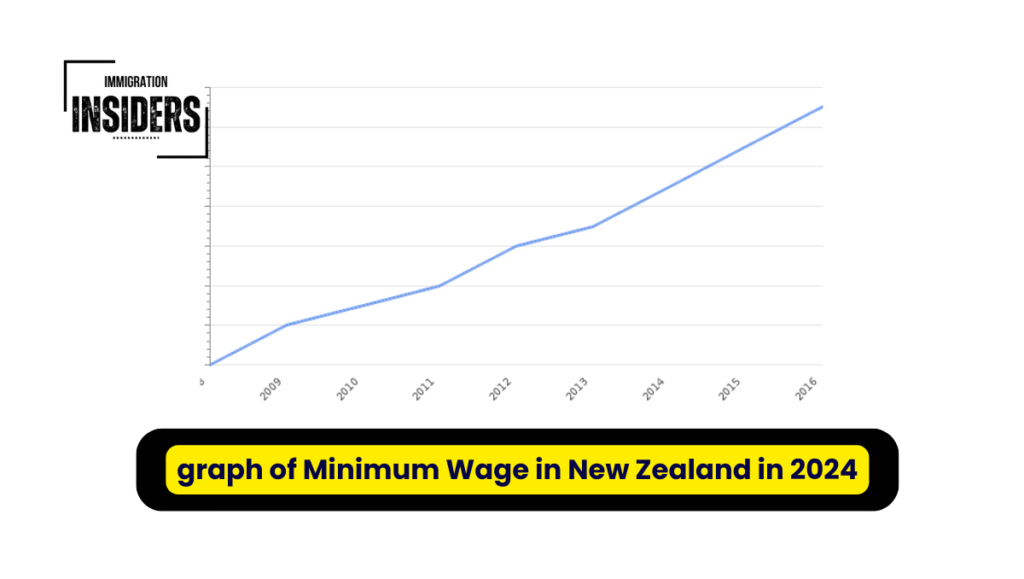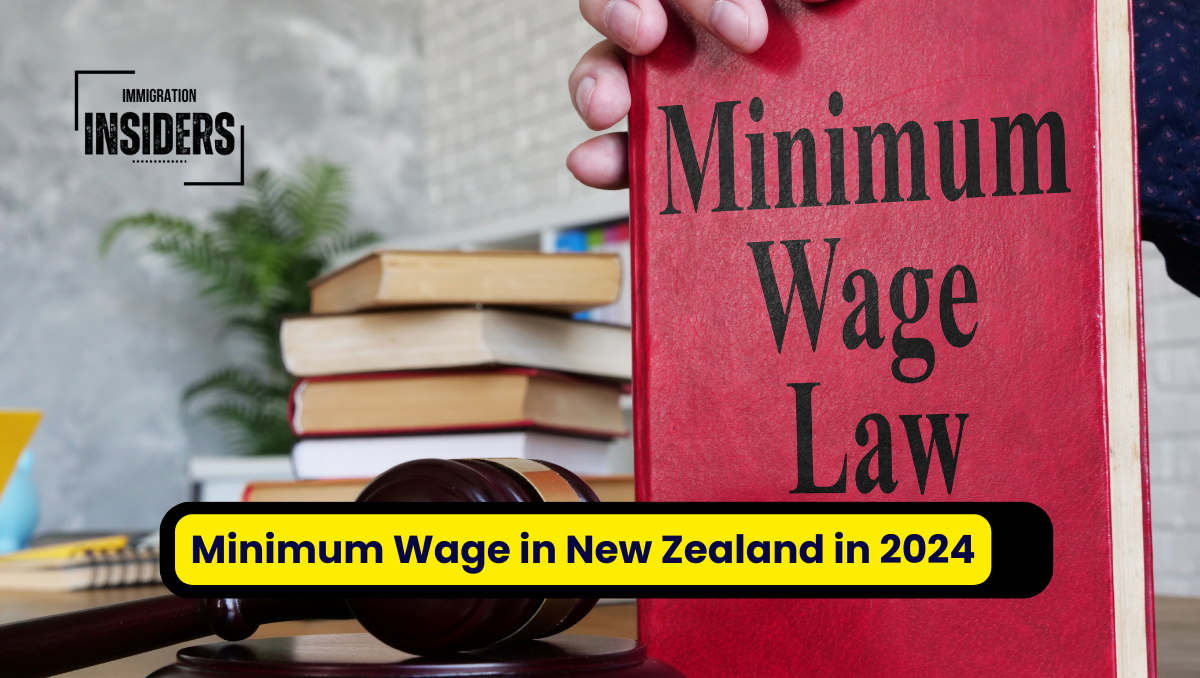New Zealand takes satisfaction in its dedication to fair labor practices, evident in its minimum wage structure. As of April 1, 2023, the current Minimum Wage in New Zealand stands at NZ$22.70 per hour. This rate is applicable until March 31, 2024, with a recent update in January 2024.
Table of Contents
Structure of Minimum Wage in New Zealand
The minimum wage structure in New Zealand is categorized into Adult, Starting-out, and Training. The rates vary per hour, day, week, and fortnight. Here’s a breakdown:
| Category | Per Hour | Per Day (8 hrs) | Per Week (40 hrs) | Per Fortnight (80 hrs) |
|---|---|---|---|---|
| Adult | NZ$22.70 | NZ$181.60 | NZ$908.00 | NZ$1,816.00 |
| Starting-out | NZ$18.16 | NZ$145.28 | NZ$726.40 | NZ$1,452.80 |
| Training | NZ$18.16 | NZ$145.28 | NZ$726.40 | NZ$1,452.80 |

Source: Minimum Wage – New Zealand: wage indicator
New minimum Wages set to be implemented from February 2024
In a recent development, the immigration system in New Zealand is gearing up for a change in the median wage, scheduled to come into effect from February 2024. The new median wage will be NZD 31.61 per hour, impacting various visa categories that have wage thresholds linked to this median.
Key Changes and Categories Affected
The adoption of the new median wage will lead to updates in several wage thresholds, affecting visa categories such as the Accredited Employer Visa (AEWV), the Skilled Migrant Category, and specific occupations covered by Sector Agreements and the Green List.
READ ALSO: New Zealand Visitor Visa Process in 2024: A Simple Guide
Separate Updates for Parent Category and Tourism & Hospitality
It’s important to note that wage thresholds for the Parent category will undergo a separate update, ensuring clarity in various visa criteria. Additionally, the wage threshold for the tourism and hospitality sector is slated for an independent update in April 2024.
Standardized Process for Clarity and Preparation
The immigration system has established a standardized process for updating the median wage every February, providing businesses with approximately six months to prepare for the impending changes. This process is facilitated by Statistics NZ.
What This Means for Employers: Stay Tuned for Details
As the new median wage becomes applicable in February 2024, employers can anticipate adjustments in visa criteria and wage expectations. More detailed information, including specific dates and implications, will be communicated closer to the implementation date.
In summary, the upcoming change in the median wage reflects a commitment to keeping the immigration system aligned with economic dynamics. Businesses are encouraged to stay informed and prepare for any adjustments in visa categories and wage requirements.
Working Hours and Eligibility
The minimum wage rate statute applies to various age groups and employment situations. The Adult minimum wage is for employees aged 16 and over, excluding Starting-out workers and trainees. The starting-out wage applies to those aged 19 or less, while the Training wage applies to employees aged 20 or over.
Starting-out Wage Scheme
Under the Starting-out Wage Scheme, eligible 16-to-19-year-olds can be paid 80% of the Adult minimum wage for six months or as long as they are undertaking recognized industry training.
Training Wage Scheme
Employees aged 20 or over, under the Training Wage Scheme, are entitled to be paid at the Adult minimum rate after completing 3 months or 200 hours of employment at not less than 80% of the minimum adult rate.
Eligibility Groups
Eligible groups for the Starting-out Wage include 16- and 17-year-olds without six months of continuous employment and 18- and 19-year-olds who have received a specified social security benefit for six months or more.
Definitions
Wages per month are calculated as 4.33 times if a weekly wage is defined, or as 4.33 times the standard hours per week if an hourly wage is given.
Graphical Representation
Impact of Minimum Wage on the Economy
A fair minimum wage has a profound impact on the economy. It ensures individuals can meet their basic needs, stimulates consumer spending, and reduces income inequality.
Benefits of Regular Minimum Wage Updates
Regularly updating minimum wage rates is crucial for maintaining a fair labor market. It promotes economic stability, reduces poverty, and fosters a more equitable society.
Challenges Faced by Businesses
While increasing minimum wages benefits workers, businesses may face challenges. Adapting strategies, such as productivity improvements, can help businesses navigate these changes effectively.
Comparison with Global Standards
Compared to other countries, New Zealand’s commitment to fair labor practices is evident in its competitive minimum wage rates. This reflects the nation’s dedication to ensuring a decent standard of living for its workforce.
Conclusion
Understanding and adhering to New Zealand’s minimum wage regulations is essential for both employers and employees. It fosters a fair working environment, contributes to economic stability, and aligns with global efforts towards equitable labor practices.
FAQs
- How often are minimum wage rates updated in New Zealand?
- Minimum wage rates in New Zealand are typically updated annually.
- Are there any exemptions to the starting-out wage?
- Exemptions to the starting-out wage apply to those who have completed six months of continuous employment or are involved in training or supervising others.
- Can businesses request exceptions to the minimum wage rates?
- Exceptions to minimum wage rates are generally not allowed, but businesses can adopt strategies to mitigate the impact on their operations.
- What is the significance of the Training Wage Scheme?
- The Training Wage Scheme aims to support employees aged 20 and over, transitioning them to the minimum adult rate after a specified period.
- How does the minimum wage in New Zealand compare to other developed countries?
- New Zealand’s minimum wage compares favorably to other developed nations, reflecting its commitment to fair labor practices



